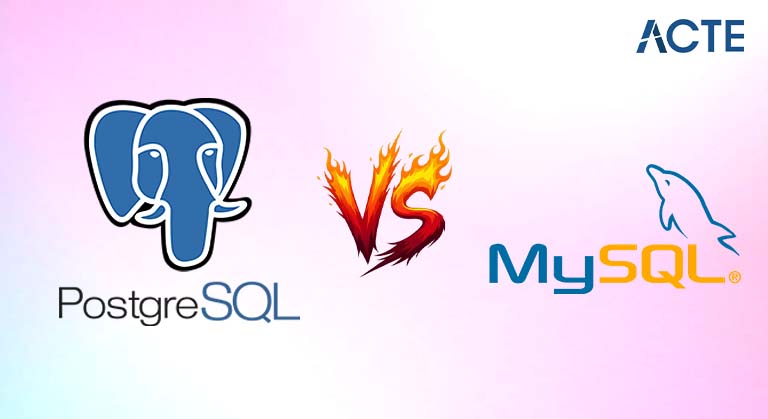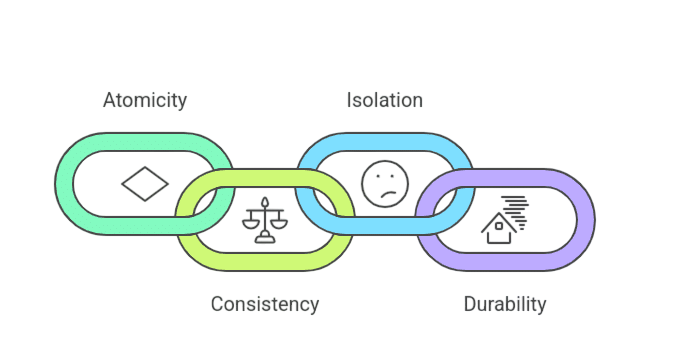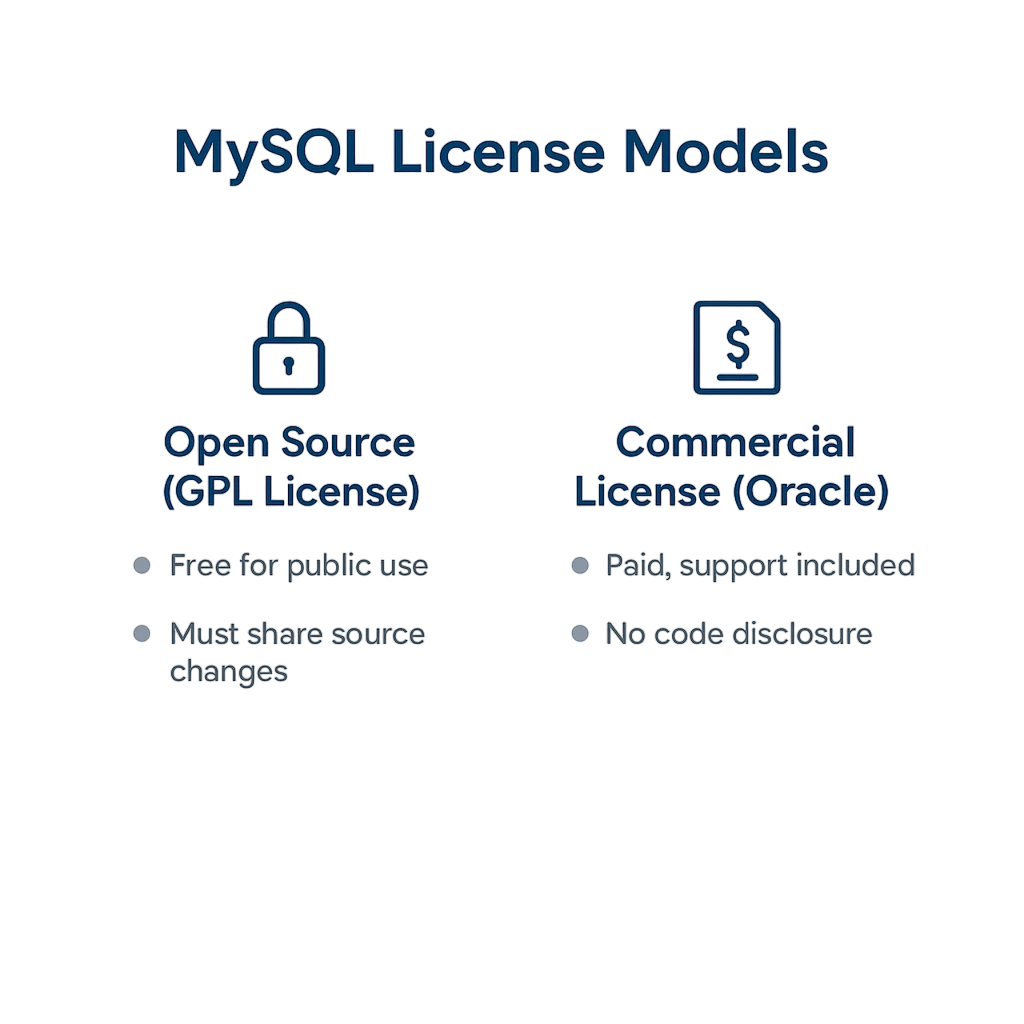
- Introduction
- Performance Comparison
- Data Integrity and ACID Compliance
- Scalability
- Supported Features
- Security
- Extensions and Customizations
- Community and Support
- Licensing and Cost
- Use Case Scenarios
- Market Adoption
- Conclusion
Introduction
MySQL is one of the most widely used open-source relational database management systems (RDBMS) in the world. Initially developed by Swedish company MySQL AB in 1995, MySQL has grown into a robust and versatile database solution powering everything from small websites to large-scale enterprise applications. Its combination of ease of use, performance, and scalability has made it a preferred choice for developers, startups, and organizations especially when backed by solid Database Training to leverage its full potential. and corporations alike.MySQL supports the SQL (Structured Query Language) standard and is known for its reliability, speed, Geographic Information System and flexibility. This article will provide a comprehensive overview of MySQL, exploring its history, architecture, performance optimization capabilities, core features, security, Encryption performance, use cases, and how it compares with other RDBMS.
Do You Want to Learn More About Database? Get Info From Our Database Online Training Today!
Performance Comparison
- Storage Engines: MySQL supports multiple storage engines like InnoDB and MyISAM, allowing users to choose engines optimized for different use cases. InnoDB provides ACID compliance and supports foreign keys, while MyISAM focuses on fast read operations.
- Query Optimization: The MySQL query optimizer parses and optimizes SQL queries to execute them efficiently, reducing resource consumption and response times.
- Indexing: MySQL supports various index types (BTREE, FULLTEXT, HASH) to accelerate query searches.
- Caching: Query cache stores results of SELECT queries, significantly improving performance for repeated requests.
- Partitioning: MySQL enables table partitioning to distribute data and speed up access on large datasets.
Compared with other relational database management systems like PostgreSQL or Oracle, MySQL tends to excel in read-heavy workloads, Geographic Information System especially web applications. However, complex transaction workloads may favor systems like PostgreSQL Overview of SQL Server
Data Integrity and ACID Compliance
Ensuring data integrity is critical for any database system. MySQL supports ACID (Atomicity, Consistency, Isolation, Durability) properties through its InnoDB storage engine:
- Atomicity: Transactions are all-or-nothing; either all operations succeed or none.
- Consistency: Transactions bring the database from one valid state to another, maintaining constraints.
- Isolation: Concurrent transactions do not interfere with each other.
- Durability: Once committed, transactions survive system failures.
- Replication: MySQL supports asynchronous and semi-synchronous replication, allowing one or more slaves to mirror the master database. This setup improves read scalability and provides fault tolerance.
- Clustering: MySQL Cluster offers a distributed, in-memory database system for high availability and which requires thorough Database Training to effectively design, deploy, and manage.
- Sharding: Though MySQL doesn’t natively support sharding, external tools and frameworks (like ProxySQL or Vitess) enable horizontal partitioning of data across multiple MySQL Clusters.
- Connection Pooling: Connection management tools reduce overhead on high-concurrency applications.
- Comprehensive SQL compliance with extensions.
- Stored procedures, functions, triggers, and events for complex business logic.
- Full-text indexing and searching capabilities.
- JSON data type and functions for semi-structured data.
- GIS (Geographic Information System) data types and spatial functions.
- Transparent data encryption and backup utilities Data Independence in DBMS
- Role-based access control and privileges.
- Authentication: Support for native password authentication, LDAP, PAM, and SSL/TLS.
- Authorization: Granular access control with user roles, privileges at the database/table/column levels.
- Encryption: Supports data-at-rest encryption for tablespaces, and encryption of data in transit with SSL.
- Auditing: Plugin support for logging and auditing user activities.
- Firewall: MySQL Enterprise Firewall protects against SQL injection attacks.
- Storage Engines: Users can add custom storage engines tailored to specific needs.
- Plugins: MySQL Cluster supports plugins for authentication, audit logging, and full-text parser.
- APIs and Connectors: Official APIs exist for various languages including C, C++, Java, Python, PHP, and Node.js.
- Performance Schema: A monitoring tool to track server performance.
- Community Edition: Free and open-source version supported by an active community.
- MySQL Enterprise: Oracle’s commercial offering provides enhanced support, tools, and features Data Control Language (DCL) in SQL
- Online Resources: Forums, tutorials, and official documentation.
- Third-party Tools: Numerous GUI clients, backup solutions, and monitoring tools.
- GPL License: Community edition is free under GNU General Public License.
- Commercial License: Enterprise edition and certain features are licensed for a fee.
- Web and e-commerce platforms (WordPress, Magento)
- Data warehousing and analytics
- Content management systems (Drupal, Joomla)
- SaaS applications and cloud services
- Gaming platforms and social media
- Banking and financial systems (with proper configuration)
- MySQL vs PostgreSQL: MySQL is easier to set up and often faster in read-heavy workloads, while PostgreSQL offers more Advanced features like better support for complex queries and standards compliance Data Lakes Vs Data Warehouses
- MySQL vs Oracle: Oracle is more feature-rich and designed for enterprise-scale systems but is costly. MySQL is lightweight and cost-effective.
- MySQL vs SQL Server: SQL Server is tightly integrated with Microsoft environments, while MySQL is more platform-independent and open-source.

While MySQL’s Default storage engine InnoDB fully supports ACID, some other engines like MyISAM do not, Geographic Information System affecting data integrity guarantees. Data Warehouse Vs Database MySQL also supports foreign keys, unique constraints, and triggers, further ensuring data correctness.
Scalability
MySQL can scale vertically (by upgrading hardware) and horizontally (via replication and clustering).
Would You Like to Know More About Database? Sign Up For Our Database Online Training Now!
Supported Features
MySQL supports a wide range of database features, including:
Security
Security is paramount in database management, and MySQL offers multiple layers:
Extensions and Customizations
MySQL’s open-source nature allows users to extend and customize it:
Community and Support
MySQL benefits from a vast global community and commercial backing:
To Earn Your Database Certification, Gain Insights From Leading Blockchain Experts And Advance Your Career With ACTE’s Database Online Training Today!
Licensing and Cost

This model allows free use in open-source projects while offering paid options for enterprises requiring additional features and support.
Use Case Scenarios
MySQL is used in diverse applications such as:
Preparing for a Database Job? Have a Look at Our Blog on Database Interview Questions and Answers To Ace Your Interview!
MySQL vs Other RDBMS
Market Adoption
MySQL is adopted by numerous major companies and platforms, including Facebook, Twitter, YouTube, Airbnb, and Netflix. Its prevalence in web hosting environments and cloud services (like AWS RDS) underlines its market leadership. As cloud computing grows, MySQL remains a favored choice for relational database management system needs.
Conclusion
MySQL’s combination of performance optimization capabilities, scalability, security, and ease of use has cemented its position as a top relational database management system solution worldwide. Its open-source roots, Geographic Information System and strong community support complement Oracle’s enterprise offerings. While other RDBMS may outperform in niche scenarios, MySQL’s broad applicability makes it indispensable for developers and businesses. With ongoing innovations in storage engines, Database Training is essential to stay updated and make the most of its evolving features. cloud integration, and automation, Data Integrity, MySQL continues to evolve, promising to meet future data challenges efficiently.


